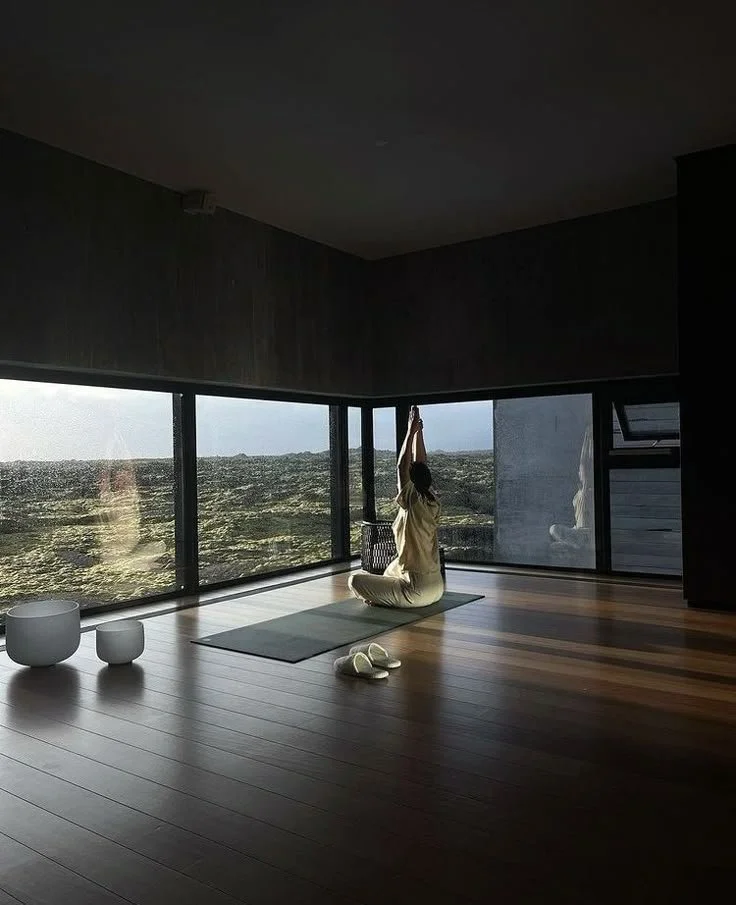The Seasonal Shift: How I Learned to Protect My Mood
Pinterest @selmaeditthh
Ever wondered why your mood starts to dip the moment the days get shorter? It is not just in your head. The colder months have a quiet way of pulling the energy out of you. Suddenly, simple things feel harder like getting out of bed, staying focused, even keeping plans. That constant low mood and tiredness that seem to arrive every year has a name and that is seasonal depression, or what some call Seasonal Affective Disorder.
For a long time, I assumed it was just laziness. I told myself I would feel better once the days got longer, or that I simply needed to push through. But over time, I realised this was something more than temporary sadness. Seasonal depression is a biological response to changing light levels, temperature, and even routine. It is not a failing or something to be ashamed of, it is a real and common condition that affects countless of people every year, including many who appear perfectly fine on the outside.
Recognising it was the first step in managing it. Once I understood that my low energy and lack of motivation were not personal shortcomings, I could start exploring practical ways to protect my mood. Over the years, I experimented with routines, light exposure, movement, and social connection, learning what actually worked for me rather than relying on hope alone. What I discovered was that with small, consistent actions, I could reclaim my energy and mental clarity during these months, rather than letting seasonal depression dictate how I felt.
Let in the Light
The most powerful adjustment was learning to value light. I began rearranging my mornings around it, opening curtains the moment I woke up, and having my coffee near a window. On days when the skies were dull, I used a light therapy lamp for twenty to thirty minutes in the morning. It was a small act, but it changed the rhythm of my days. My mornings began to feel lighter, more structured and more hopeful.
Light, I realised, is not just physical. It tells the body and the mind that the day has started, that there is something to look forward to. When I treated light like part of my routine rather than something I occasionally noticed, my energy followed.
Movement Over Motivation
Pinterest @mariiaaa333
It is easy to stop moving when the weather turns. I used to wait for motivation to strike before exercising, but motivation rarely appears when you feel low. So, I flipped it, I moved first. Some mornings, it was a brisk walk through streets covered in leaves, while other days, a few stretches in my living room with music playing softly in the background.
Exercise releases endorphins and regulates sleep, but for me, it did more than that. It created a sense of control. In a season where everything slows down, movement reminded me that I could still generate energy. I was not waiting for better days, I was creating them.
Food as Fuel
Autumn and winter come with comfort food, which can be both a joy and a trap. I love the warmth of soups, the sweetness of baked treats, the richness of cosy dinners. But when I felt my mood slipping, I noticed that heavy, sugary foods often made me more tired. So I tried to cook with balance in mind.
Leafy greens, roasted vegetables, salmon, eggs, and whole grains became staples. But yes, I still had the occasional slice of cake, but it was part of nourishment, not escape. Cooking became its own kind of therapy. There is something grounding about chopping vegetables or stirring a simmering pot. It made me feel present and capable, which matters when your mind starts to drift towards gloom.
Stay Connected
Pinterest @jaylynvtruong
Seasonal depression gets worse when I pull away from people. I’ve noticed that the more time I spend alone, the heavier everything feels. This year, I made a conscious effort to stay in touch, even on the days I didn’t want to talk. Sometimes it was just replying to a message instead of leaving it on read, or saying yes to a short coffee catch-up when I’d normally cancel.
These small interactions helped more than I expected. Talking about how I felt, or even just being around people who made me laugh, reminded me that I wasn’t the only one struggling with the shift in seasons. Everyone feels it in some way. It doesn’t fix everything, but it makes it easier to get through the harder days. Staying connected has become one of the simplest, most effective things I do to stop the season from swallowing me up.
A Mindful Reset
When the days start getting shorter, I notice my thoughts becoming louder. It is strange how everything outside slows down, yet my mind seems to speed up. I find myself replaying small moments, worrying about things that do not matter, or over-analysing conversations from days ago. That is usually when I remind myself to pause.
Journalling has helped me more than I expected. I try to write a few lines each morning, nothing too deep, just about how I am feeling or what I need to get done. Putting things on paper helps me see what is actually happening instead of what my mind is exaggerating. It gives structure to the mess in my head.
I also started doing short mindfulness sessions, usually ten minutes of sitting quietly, breathing slowly, and paying attention when my thoughts begin to spiral. It sounds simple, but it creates a small gap between me and the chaos. I can see my thoughts for what they are rather than being pulled into them. It reminds me that moods shift, and that feeling low is temporary, not permanent.
Celebrate the Small Wins
Pinterest @xrlarose
What finally shifted my mindset was learning to recognise progress, not perfection. Seasonal depression makes it easy to feel like nothing you do is enough. But I realised that getting out of bed on time, taking a walk, or making a proper meal were all victories worth noticing.
I started keeping a list of small wins in a notebook. By the end of the week, it was full of proof that I was doing better than I thought. The list became a quiet reminder that recovery does not happen all at once. It happens in ordinary, gentle moments.
The Season Does Not Define You
Seasonal depression is real, but it does not have to dictate the tone of your life. Learning to manage it is not about fighting nature; it is about adapting to it. The darker months will always come, but now I know they do not have to dim my own light.
With light, movement, nourishment, connection and mindfulness, the season feels softer. It is still autumn, still imperfect, still grey at times. But this year, I am not waiting for spring to feel alive.



